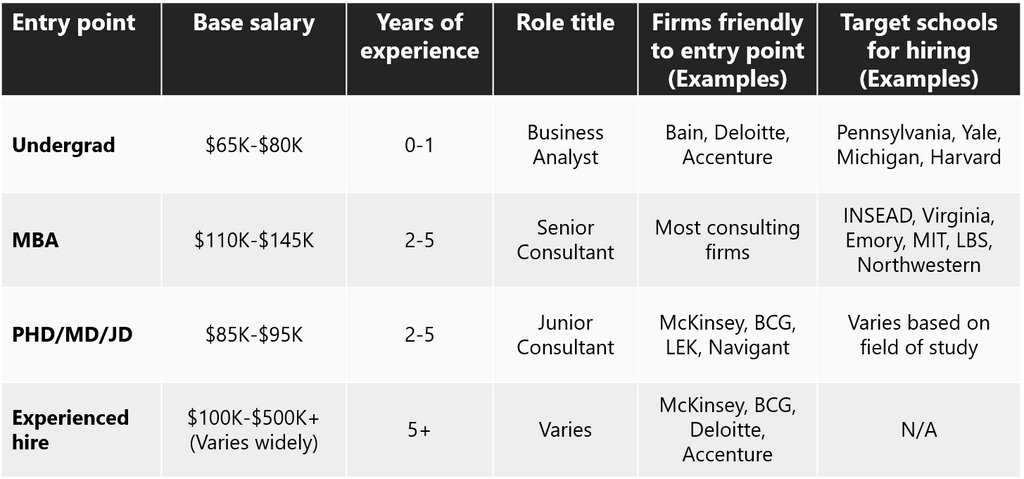
Are you interested in becoming an independent insurance consultant? Do you have an insurance consulting experience? This article will provide more details if you are. Here are the qualifications needed to become an insurance consultant. Also, learn about insurance consulting licensing, professional liability insurance, and exemptions from license. We will also discuss the compensation which is often higher than for other consulting positions. In addition, we'll explore the many benefits of becoming an insurance consultant. Before you begin your search for the perfect job, make sure you consider the experience and qualifications of the consultant that interests you.
Qualifications of insurance consultants
The financial concepts involved in an insurance consulting career require a solid understanding. Along with understanding the intricacies associated with insurance policies, it is important that insurance consultants are creative and innovative when meeting clients' needs. A company's ability to promote an individual is often a determining factor in their advancement. However, some companies require that they hire someone from the outside while others require them take on a new role. Advancement can be achieved by increasing responsibility and learning new skills.
Although the requirements for training and education for insurance consultants vary by state, they all require applicants to have a bachelor's degree in insurance or comparable work experience in a related field. Some employers require that consultants have at least one year of experience in the insurance industry and have excellent interpersonal and computer skills. However, certification may be required in some states. This is not a requirement for most positions. Additionally, many consulting jobs involve extensive traveling, which can increase job instability.

Professional liability insurance
A professional liability policy, also known under the umbrella of errors and omissions coverage, is something that consultants are familiar with. This type of insurance protects you from lawsuits from unhappy clients and can cover any costs resulting from claims. Sometimes, disputes can arise between clients and consultants and result in lawsuits. This insurance is particularly useful for consultants who regularly deal with clients.
Professional liability insurance covers all errors and omissions that could cause financial loss to a client. The insurance covers both accidental and intentional breach of contract. This type of coverage can also be used to cover legal fees or court costs for clients who sue you for a contract breach. Most policies cover subcontractors. However, if you have a business that relies on the use professional services, a separate policy will be required to provide professional liability insurance.
Exemptions from the license
All licensed brokers and agents of insurance must complete continuing education according to the Insurance Law. Section 2132 details the requirements for continuing training. The CE requirements for long-term licensurees are not exempt, but there are special circumstances where exemptions may be granted. This includes ticket agents that sell travel insurance as well as agents with licenses not issued by state boards of insurance. It also applies to those with limited licenses such as those who are licensed only in California.
A certified insurance consultant may not receive payment from an insurer or a producer, but may still earn credits. This license is exempt from the federal investment advisory act. It may be used to serve any person, organisation, or corporation. There is a one-year waiting period after the license is suspended or revoked. The licensee can no longer practice as a licensed person after the license is revoked. Additionally, licensed individuals from other states may continue to practice under these conditions.

Compensation
Even though consulting companies may appear to be relatively safe, there are still risks. Injuries and accidents can have a devastating effect on the business. Slips, falls and other injuries can cause just as much damage as chronic conditions like carpal tube syndrome. Even minor injuries can cause long-term damage. Therefore, it is important to have compensation insurance for your business's financial security. Here are the details about your business insurance coverage.
While workers' compensation is not required by law, it is important that you protect yourself and your employees. Even if you don't employ anyone directly, you're responsible for their safety and well-being. Your health insurance policy does not cover injuries sustained by employees while they are working for you. Fortunately, workers' comp can help you recover from lost wages due to injury or illness. Workers' compensation is an important piece of legal protection that you should consider for your company.
FAQ
What qualifications are necessary to become a consultant
It doesn't suffice to hold an MBA. You also need to be able and willing to work as a business advisor. At least two years experience in training and/or consulting for major companies is required.
It is essential that you have experience working closely with senior management on strategic development projects. This requires you to feel confident presenting ideas to clients, and getting buy-in.
You'll also need to pass a professional qualification exam such as the Chartered Management Institute's Certified Management Consultant (CMC) certification.
Are you a qualified consultant?
Learning a lot about a subject and then applying it to your life is the best way to be an expert.
So if you want to learn how to become a great consultant, start studying now!
If you have a degree but no relevant experience, you may struggle to get hired. If you have demonstrated that you have studied the same subjects as those who received the jobs, then you may still be eligible to apply.
Employers will always be attracted to candidates who are able to apply their real-world skills.
What is the difference of a consultant versus an advisor?
An advisor gives information on a topic. A consultant can offer solutions.
A consultant works directly alongside clients to help them realize their goals. Clients are referred to advisors through books, magazines and lectures.
What happens when the consultant finishes the job?
After the consultant completes their work, he/she will submit a final summary of the results. This report includes project timelines, deliverables, and any other pertinent information.
Next, you will review the report and determine if the consultant has met your expectations. If you are not satisfied with the consultant's report, you have the option to ask for modifications or to terminate your contract.
Statistics
- According to statistics from the ONS, the UK has around 300,000 consultants, of which around 63,000 professionals work as management consultants. (consultancy.uk)
- So, if you help your clients increase their sales by 33%, then use a word like “revolution” instead of “increase.” (consultingsuccess.com)
- Over 50% of consultants get their first consulting client through a referral from their network. (consultingsuccess.com)
- WHY choose me: Why your ideal client should choose you (ex: 10 years of experience and 6-week program has helped over 20 clients boost their sales by an average of 33% in 6 months). (consultingsuccess.com)
- According to IBISWorld, revenues in the consulting industry will exceed $261 billion in 2020. (nerdwallet.com)
External Links
How To
How can I start an advisory business with no money?
It's easy and cost-effective to start your own consulting business without capital investment.
This tutorial will teach you how to make money from home while improving your skills and earning extra cash.
I'll share my secrets for generating traffic on demand, particularly when people search for something specific.
This is known as 'Targeted Traffic. This method was specifically designed to make it possible to accomplish such things...
-
You should choose the niche you wish to work in.
-
You can find out what keywords people use to search Google for solutions.
-
These keywords are the basis of your content.
-
Post your articles on article directories.
-
Promote your articles using social media.
-
Create relationships with experts in this niche.
-
You can be featured on these websites and blogs.
-
By sending emails, you can increase your email list.
-
Start making money.